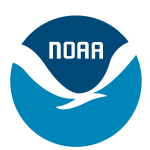- Industri: Government
- Number of terms: 30456
- Number of blossaries: 0
- Company Profile:
NOAA Coral Reef Conservation Program, National Oceanic and Atmospheric Administration, U.S. Department of Commerce
Classification specified in water quality standards for each waterbody or segment describing the level of protection from perturbation afforded by the regulatory programs. The designated aquatic life uses established by the state or authorized tribes set forth the goals for restoration and/or baseline conditions for maintenance and prevention from future degradation of the aquatic life in specific waterbodies.
Industry:Natural environment
Clusters of sticky tubules, located at the base of the respiratory tree, which may be discharged by some sea cucumbers (holothurians) when mechanically stimulate, as for example, when being threatened by a predator. Their great adhesivity, combined with their high tensile strength, allows the Cuvierian tubules to entangle and immobilize potential predators with which they come into contact. After expulsion, the lost tubules are readily regenerated, making them a formidable defense mechanism.
Industry:Natural environment
Commercially harvested sea cucumbers (Class Holothuroidea). In Asia, it is considered to be a delicacy.
Industry:Natural environment
Coordinates the development of the National Spatial Data Infrastructure (NSDI). The NSDI encompasses policies, standards, and procedures for organizations to cooperatively produce and share geographic data. The 17 federal agencies that make up the FGDC are developing the NSDI in cooperation with organizations from state, local and tribal governments, the academic community, and the private sector.
Industry:Natural environment
CORAL promotes coral reef conservation around the world by working with the dive industry, governments, local communities and other organizations to protect and manage coral reefs, establish marine parks, fund conservation efforts, and raise public awareness with the mission to keep coral reefs alive for future generation.
Industry:Natural environment
CORDIO is an international program created to respond to the degradation of coral reefs throughout the Indian Ocean. In the western Indian Ocean region coral reefs are key ecosystems that support large sectors of the countries' populations and economies, through artisanal fisheries, tourism and large-scale investments. Projects within CORDIO focus on determining a) the biophysical impacts of coral degradation as a result of bleaching and other disturbances, and the long term prospects for recovery, b) the socio-economic impacts of coral mortality and options for mitigating these through management and development of alternative livelihoods, and c) the prospects of restoration and rehabilitation of reefs to accelerate the ecological and economic recovery.
Industry:Natural environment
DNA (deoxyribonucleic acid) that makes up the genetic material of viruses.
Industry:Natural environment
DNA replication or DNA synthesis is the process of copying the double-stranded DNA prior to cell division. The two resulting double strands are identical (occasionally errors (mutation) in replication can result in a less than perfect copy) and each of them consists of one original and one newly synthesized strand.
Industry:Natural environment
DNA that does not encode any product (RNA or protein). The majority of the DNA in plants and animals is noncoding.
Industry:Natural environment
A series of enzymatic reactions in mitochondria involving oxidative metabolism of acetyl compounds to produce high-energy phosphate compounds that are the source of cellular energy ; also known as the tricarboxylic acid (TCA) cycle and as the citric acid cycle.
Industry:Natural environment
